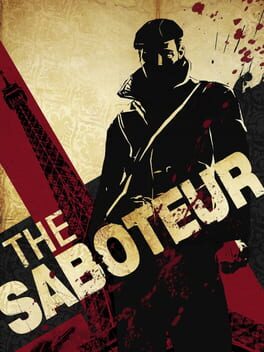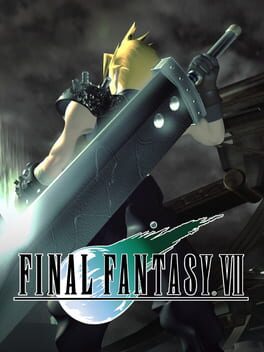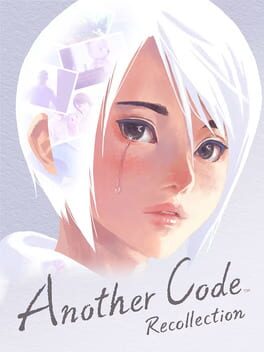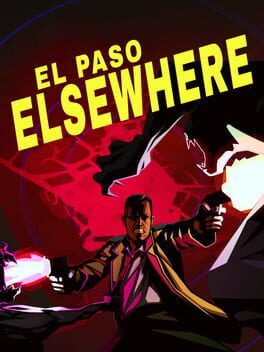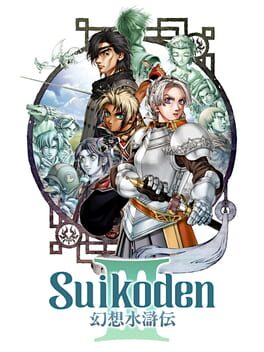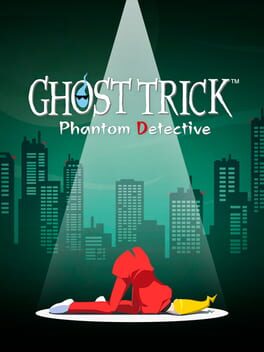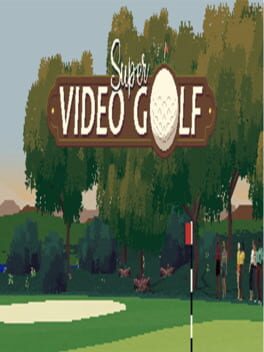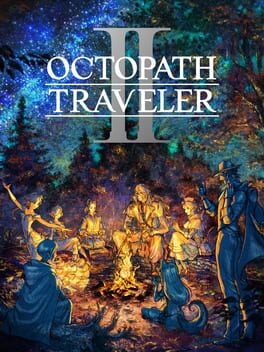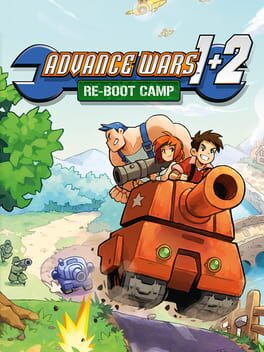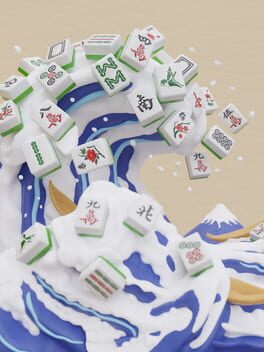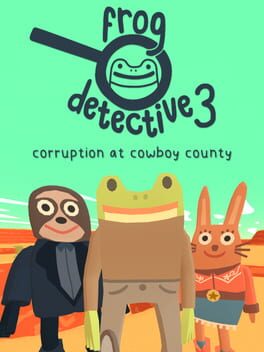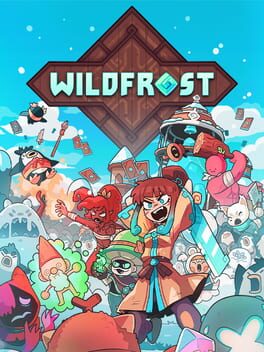myherozero
BACKER
2009
The Saboteur is one of those games that blew me away when I played it back when it first released. It would take almost a decade for a game to come around that I think understood the open world genre better than this game (and more broadly, the way that Pandemic Studios understood it). Thankfully due to the recent re-release on Steam, I was able to revisit this gem.
I think firstly, I need to talk about if it has held up, as often is the question when revisiting nostalgia. Yes, with an asterisk the size of a boulder. The story is bare bones and frankly not great. The character motivation of revenge is a tried and true plot device and it is mostly the only thing that works here. I think Sean being a mechanic and racecar driver is great stuff, but there's no in game explanation why he is so good with explosives. Other than he is Irish I guess and oh god, did they only make him Irish because of the IRA? The other characters are all forgettable. The game is clunky at times from a gameplay perspective. Sean will often be confused about climbing over a wall and not just immediately grabbing the other side, or grabbing at all when you need him to, like trying to grab a wire. It's definitely a game made in the aughts with all of the bad movement and awful game and narrative design that statement entails.
So, why do I think it still holds up? This game oozes style. The noir black and white visuals with splashes of reds, yellows, or blues with full color in liberated areas is such a cool motif and still works so damn well to tell a story while also just being visually interesting. I think, though, while the story here is not great, Pandemic Studios' games only really use a vague story as a driver to make really interesting open world games. I think they really understood the genre and it wasn't until Breath of the Wild did another game really nail it in a way it felt The Saboteur did. The climbing in this game felt unreal in 2009 in comparison to its contemporaries. Lots of games were trying to figure out this freedom of movement and I think Pandemic Studios should be applauded for doing the best attempt at it. The market shifted on open world and freedom of movement took a big back seat until BOTW's climb anything, paraglide everywhere made the case with a massive exclamation point (though maybe telling that the only game since BOTW that understood this was Tears of the Kingdom). Now, I will take the rose-tinted glasses down a bit and say that the climbing has aged here. I think this argument probably seems silly if you first played this game now at least. It is a good reminder that this is a 15 year old game and give it a little grace. The open world design here is a map without a whole lot of different markers, which runs counter to the direction of Ubisoft open world games and heralds the noiseless maps of BOTW or Elden Ring. The free play elements of The Saboteur feed into the main game in a brilliant way. You can go in and clear out sniper towers and tanks and it'll make missions in those areas easier. And the free play stuff is definitely a good 'turn off your brain and listen to a podcast' gameplay loop. It can get repetitive and lacks variety after a while however. Fun to do in small doses when the mood strikes or when you know a mission is going to be in the area. These freeplay targets are also not critical to complete, they help to earn funds to buy upgrades or just as a fun distraction.
I think the last point I want to make on 'yes this holds up' is that the shooting and blowing things up is still just fun! Tossing a grenade from a roof down to a group of nazis and watching them ragdoll away is hilarious. I think shooting in third person games is such a tricky thing to nail. Rockstar only started to get it right after acquiring Team Bondi and how good it felt in LA Noire has then followed with GTA V and Red Dead 2 having some of the best feeling shooting in gaming. Pandemic was great at this with far less resources than Rockstar. It would have been interesting to see how they could have improved their systems into the Mercenaries game they were working on.
But I think the bigger picture includes a discussion of Pandemic Studios as a whole and the death of the AA game space. The last three series they made games for (Mercenaries, Destroy All Humans, The Saboteur) show that they understood making an open world fun and doing interesting things in the space. Their games are clunky and the stories are forgettable, but they are fun. They are games that have stuck with me for being fascinating and introducing mechanics that not many developers were going for. I think we started to lose these mid-tier games around this time as the industry chased bigger budget games and every game jockeys to be a blockbuster. Unfortunately, we are seeing the cost of these decisions now, with wide spread layoffs even if a game does well because it was not enough. News of more and more layoffs at game studios weighs on me and breaks my heart with each one. Now more than ever, we need more games like The Saboteur. We need more developers to be able to take risks with style and mechanics. And most importantly, these corporations don't punish these developers with layoffs or studio closures. I would love to see more games like The Saboteur and more studios like Pandemic be able to thrive instead of suffering the same fate that Pandemic ultimately did and like so many other studios did and continue to do.
I think firstly, I need to talk about if it has held up, as often is the question when revisiting nostalgia. Yes, with an asterisk the size of a boulder. The story is bare bones and frankly not great. The character motivation of revenge is a tried and true plot device and it is mostly the only thing that works here. I think Sean being a mechanic and racecar driver is great stuff, but there's no in game explanation why he is so good with explosives. Other than he is Irish I guess and oh god, did they only make him Irish because of the IRA? The other characters are all forgettable. The game is clunky at times from a gameplay perspective. Sean will often be confused about climbing over a wall and not just immediately grabbing the other side, or grabbing at all when you need him to, like trying to grab a wire. It's definitely a game made in the aughts with all of the bad movement and awful game and narrative design that statement entails.
So, why do I think it still holds up? This game oozes style. The noir black and white visuals with splashes of reds, yellows, or blues with full color in liberated areas is such a cool motif and still works so damn well to tell a story while also just being visually interesting. I think, though, while the story here is not great, Pandemic Studios' games only really use a vague story as a driver to make really interesting open world games. I think they really understood the genre and it wasn't until Breath of the Wild did another game really nail it in a way it felt The Saboteur did. The climbing in this game felt unreal in 2009 in comparison to its contemporaries. Lots of games were trying to figure out this freedom of movement and I think Pandemic Studios should be applauded for doing the best attempt at it. The market shifted on open world and freedom of movement took a big back seat until BOTW's climb anything, paraglide everywhere made the case with a massive exclamation point (though maybe telling that the only game since BOTW that understood this was Tears of the Kingdom). Now, I will take the rose-tinted glasses down a bit and say that the climbing has aged here. I think this argument probably seems silly if you first played this game now at least. It is a good reminder that this is a 15 year old game and give it a little grace. The open world design here is a map without a whole lot of different markers, which runs counter to the direction of Ubisoft open world games and heralds the noiseless maps of BOTW or Elden Ring. The free play elements of The Saboteur feed into the main game in a brilliant way. You can go in and clear out sniper towers and tanks and it'll make missions in those areas easier. And the free play stuff is definitely a good 'turn off your brain and listen to a podcast' gameplay loop. It can get repetitive and lacks variety after a while however. Fun to do in small doses when the mood strikes or when you know a mission is going to be in the area. These freeplay targets are also not critical to complete, they help to earn funds to buy upgrades or just as a fun distraction.
I think the last point I want to make on 'yes this holds up' is that the shooting and blowing things up is still just fun! Tossing a grenade from a roof down to a group of nazis and watching them ragdoll away is hilarious. I think shooting in third person games is such a tricky thing to nail. Rockstar only started to get it right after acquiring Team Bondi and how good it felt in LA Noire has then followed with GTA V and Red Dead 2 having some of the best feeling shooting in gaming. Pandemic was great at this with far less resources than Rockstar. It would have been interesting to see how they could have improved their systems into the Mercenaries game they were working on.
But I think the bigger picture includes a discussion of Pandemic Studios as a whole and the death of the AA game space. The last three series they made games for (Mercenaries, Destroy All Humans, The Saboteur) show that they understood making an open world fun and doing interesting things in the space. Their games are clunky and the stories are forgettable, but they are fun. They are games that have stuck with me for being fascinating and introducing mechanics that not many developers were going for. I think we started to lose these mid-tier games around this time as the industry chased bigger budget games and every game jockeys to be a blockbuster. Unfortunately, we are seeing the cost of these decisions now, with wide spread layoffs even if a game does well because it was not enough. News of more and more layoffs at game studios weighs on me and breaks my heart with each one. Now more than ever, we need more games like The Saboteur. We need more developers to be able to take risks with style and mechanics. And most importantly, these corporations don't punish these developers with layoffs or studio closures. I would love to see more games like The Saboteur and more studios like Pandemic be able to thrive instead of suffering the same fate that Pandemic ultimately did and like so many other studios did and continue to do.
2012
Final Fantasy 7 is a timeless classic. I think I always knew that but it wasn't until I decided that the time was finally here to replay it in full to truly understand that. It's a game that's truly bigger than itself, now more than ever being remade as a trilogy, but the cultural and industry impacts of FF7 are still as important now as it was when it was released. There are big landmark games that shape the types of games that get made but also have such profound impacts on what games we, as the hobbyists, choose to play. This is very often either someone my age's first RPG or the one that made the biggest case for the genre. I cannot remember many RPGs prior to FF7 but I know I started playing a ton of them after.
I think the best part of revisiting a game from my childhood is that I understood so much more of it this time. I think I knew the materia system was a great magic system, but I really 'got' it now. I think I knew the story was great, but it's so much better now. The themes of environmentalism and anti-corporatism feel more at place now in 2024 than 1997. The characters have such a richer depth through the lens of an adult. Cloud was always cast as this moody loner, but it comes through a lot clearer that his aloofness and 'coolness' is a cover for insecurity and a fear of disappointment. The dichotomy of Tifa and Aerith also stuck out to me more. Tifa being the monk/brawler character, typically brash and loud characters, struggles with being scared of her memories and of what is going on with Cloud and often cannot find her words. Meanwhile, her opposite, Aerith, the typical White Mage, whom are often fragile and meek, is bold and funny and confident. She often takes charge and why her absence is felt much more deeply. I have to mention that Cait Sith/Reeve stuck out a lot more as an adult with a career more than as a kid. I think a lot of people hate this character for being a spy, but there's this conflict of him being loyal to the company and his place in the party. It reminded me a lot of stories of people who worked at Enron who were not involved in the fraud. The conflict of needing to be employed vs clear villainy.
Thankfully now there is easy access to guides and this game's secrets have been spoiled multiple times over. As a kid, I never interacted with the chocobo breeding/racing aspect, so I had never got Knights of the Round. I decided to see new parts of this game and being able to ride around on a gold chocobo makes you see the world in a different way. It's actually pretty nice to be able to look at an old game, during a replay, with a new experience in the mix. There are still some things I am leaving incomplete however. Emerald and Ruby Weapon will maybe have to wait another 25+ years.
There's so much that is impressive with this game. I've been stunned at this perfect pacing where I previously thought it would have dragged. I have truly been impressed by the materia system. I am charmed by these characters in a new way. This story hits harder in the world we now inhabit. It's truly a game I think is worth playing at any time and it is always going to be this classic game.
I think the best part of revisiting a game from my childhood is that I understood so much more of it this time. I think I knew the materia system was a great magic system, but I really 'got' it now. I think I knew the story was great, but it's so much better now. The themes of environmentalism and anti-corporatism feel more at place now in 2024 than 1997. The characters have such a richer depth through the lens of an adult. Cloud was always cast as this moody loner, but it comes through a lot clearer that his aloofness and 'coolness' is a cover for insecurity and a fear of disappointment. The dichotomy of Tifa and Aerith also stuck out to me more. Tifa being the monk/brawler character, typically brash and loud characters, struggles with being scared of her memories and of what is going on with Cloud and often cannot find her words. Meanwhile, her opposite, Aerith, the typical White Mage, whom are often fragile and meek, is bold and funny and confident. She often takes charge and why her absence is felt much more deeply. I have to mention that Cait Sith/Reeve stuck out a lot more as an adult with a career more than as a kid. I think a lot of people hate this character for being a spy, but there's this conflict of him being loyal to the company and his place in the party. It reminded me a lot of stories of people who worked at Enron who were not involved in the fraud. The conflict of needing to be employed vs clear villainy.
Thankfully now there is easy access to guides and this game's secrets have been spoiled multiple times over. As a kid, I never interacted with the chocobo breeding/racing aspect, so I had never got Knights of the Round. I decided to see new parts of this game and being able to ride around on a gold chocobo makes you see the world in a different way. It's actually pretty nice to be able to look at an old game, during a replay, with a new experience in the mix. There are still some things I am leaving incomplete however. Emerald and Ruby Weapon will maybe have to wait another 25+ years.
There's so much that is impressive with this game. I've been stunned at this perfect pacing where I previously thought it would have dragged. I have truly been impressed by the materia system. I am charmed by these characters in a new way. This story hits harder in the world we now inhabit. It's truly a game I think is worth playing at any time and it is always going to be this classic game.
This is a game about memories. About remembering the past that created you as the person you are now. So the fascination grows that this release is a remake of a game about memories. Almost like a story from your own life told and retold to the point where fact and fiction have blurred. I couldn't help thinking about Cing, the original developer of these games, as I played. I never played the originals, but Hotel Dusk holds a special place in my heart and Cing, despite their eventual bankruptcy, has an oversized presence in what they created in the DS/Wii era. A time slowly being forgotten.
I have been thinking about remakes a lot more lately. Most likely due to the obvious lower costs than to make something brand new and sell a known quantity, but regardless it is the current trend in gaming at the moment. I think Another Code falls into the territory of it plays like how you remember games of that era playing like. But it is a false memory. That's not how it was. This is not how it is.
For better or worse, we age. Our memories fade. They became less reliable. A ghost isn't going to help us solve puzzles and remember things perfectly. I don't know what that says about art or games. I don't know what that should say. Maybe calling games like this remakes does a disservice not just to the work Cing did or the newer work that Arc System Works did. And they did a great job. They make a game that is beautiful and plays well. It's a wonderful experience. Maybe there should be new ways to discuss these types of games.
In music, there are cover songs. An artist does their interpretation of another musician's song. Maybe they play it straight, maybe they make it their own. There are songs so old that no one even knows who originally made it. Memories being imperfect. History and record keeping being imperfect. But maybe there should be a concept of a "cover game". A developer making their version of another developer's game. Something to think about as this medium gets older and as we get older.
Did I overthink a game that is a simple walk around, listen to the story and solve simple puzzles game? Absolutely. But not many games make you think about bigger topics outside of it. The dichotomy of memories being a thing of our pasts but also the only thing we can ever leave behind. Much like the game did paraphrasing Hemingway, we die two deaths.
I have been thinking about remakes a lot more lately. Most likely due to the obvious lower costs than to make something brand new and sell a known quantity, but regardless it is the current trend in gaming at the moment. I think Another Code falls into the territory of it plays like how you remember games of that era playing like. But it is a false memory. That's not how it was. This is not how it is.
For better or worse, we age. Our memories fade. They became less reliable. A ghost isn't going to help us solve puzzles and remember things perfectly. I don't know what that says about art or games. I don't know what that should say. Maybe calling games like this remakes does a disservice not just to the work Cing did or the newer work that Arc System Works did. And they did a great job. They make a game that is beautiful and plays well. It's a wonderful experience. Maybe there should be new ways to discuss these types of games.
In music, there are cover songs. An artist does their interpretation of another musician's song. Maybe they play it straight, maybe they make it their own. There are songs so old that no one even knows who originally made it. Memories being imperfect. History and record keeping being imperfect. But maybe there should be a concept of a "cover game". A developer making their version of another developer's game. Something to think about as this medium gets older and as we get older.
Did I overthink a game that is a simple walk around, listen to the story and solve simple puzzles game? Absolutely. But not many games make you think about bigger topics outside of it. The dichotomy of memories being a thing of our pasts but also the only thing we can ever leave behind. Much like the game did paraphrasing Hemingway, we die two deaths.
2023
This is one of those games where I find putting a star rating on it feels... inaccurate? Incomplete. Much like my time with the game I suppose.
I've taught myself not to just power through and finish a game as maybe I would have a decade or more ago. So when my interest started to wane and I looked up how many chapters were left, it didn't help to learn I was only half way through. I pushed ahead a little more but hitting a brick wall of a boss fight, I decided to cut my losses. The gameplay is good, the story is good, and the music is great. Honestly, it's a good game and the people who are good at it will love it. It just is long without justifying that length and odd difficulty spikes on the "intended" settings.
I've taught myself not to just power through and finish a game as maybe I would have a decade or more ago. So when my interest started to wane and I looked up how many chapters were left, it didn't help to learn I was only half way through. I pushed ahead a little more but hitting a brick wall of a boss fight, I decided to cut my losses. The gameplay is good, the story is good, and the music is great. Honestly, it's a good game and the people who are good at it will love it. It just is long without justifying that length and odd difficulty spikes on the "intended" settings.
2002
I don't expect my thoughts on this game are widely shared, but this is a special game to me and I want to at least put them into writing somewhere, for myself.
It makes me sad with some of the hate this game receives. "Where's the sprites" or "lol PS2 graphics". To me, the graphics capture the spirit of the original art and the vibe of Suikoden games. The work done on animating body language and facial expressions is wonderful. It has a lot of expressive depth and is just utterly charming. I honestly think it holds up even compared to recent games that use motion capture. I still think about this animation work constantly and I wish I could tell the people who worked on it how important and recognized their work is, even 20 years later. Simple moments like Lucia hugging Hugo, the Saint Loa Knights kids, or any of the Duck Clan animations are still completely amazing to me. I do think some of the animations in the game can be stiff and stilted, but a love and craft went into 3 that you can tell was missing from Suikoden 4. The vibrancy of colors and art style had such an impact on me that it feels like one of those things I have been trying to find again, to find another game to recapture some of the feelings of playing Suikoden 3 for the first time. Suikoden 3 feels like a rich, lively world.
The story of Suikoden 3 does not and could never stand up against the story of 2. Suikoden 2 is a masterpiece, it will stand the test of time. So I think people do Suikoden as a series a disservice for having those same lofty expectations of any other game in the series. Suikoden 3 uses its story to solve one of the biggest issues from 1 and 2. To recruit 108 characters but only have one main party feels frustrating. So Suikoden 3's Trinity system having three parties and using a Rashomon story telling style is a welcomed addition and what 3 does the best. It's fun and over the top but also emotional and serious. It does the story beats well.
The world building of Suikoden as a whole is why I think people love these games. There's weight to the story in one game that could tie into another. I think the Murayama trilogy of games are all must plays to really see this magic work. It fell apart when he left and 4 and 5 only loosely tie into the whole. Seeing characters age and have lives you do not see in between games really gives a weight to this being a living world and you are only seeing it through the lens of specific regional conflicts. I think within that truly lies the tragedy of these games. There's so many great characters and concepts and building to something even bigger that was abandoned after the 3rd game. We'll never know the names of all of the True Runes, we'll never get a game that really explores Harmonia, we'll never see minor characters we love return in a sequel. We'll never know the true size of this world and in a lot of ways, RPG story telling is worse off for it. Imagine a world where a Suikoden XVI just released instead of a Final Fantasy.
Is this game perfect? No. Though, it does seem troubling to me that when people discuss a theoretical remake that none of them understand this game. And if you don't understand a game, then you risk destroying what made it special. In the last two or three years, I've had remaster after remaster just be mind boggling with what they 'fix'. I see people say the art of Suikoden 3 sucks or the battle system is terrible and they would throw it all away.
The battle system is unique, it is difficult to adjust to coming from games that let you assign commands to all 6 characters. Instead you assign commands to 3 pairs of characters and that makes you think about team combinations and I think this works well with matching someone who is always attacking with a spell caster, or one of the few beast riding combinations. Just because something is different than what you want, does not mean it is bad. It would have been nice to see what another revamp of this system could have been. They tried something new and it's neat in a way that's just not a standard battle system.
To me, Suikoden 3 is special. It holds a special place in my heart. If FF7 was the game that really introduced me to RPGs as a genre, Suikoden 3 introduced me to the full potential of what RPGs could be. It has character and it has heart and as I grow older and I understand more of the behind the scenes of how my favorite games were made, it is heartbreaking too. I think Eiyuden Chronicles in a lot of ways feels like the team wants to take all of the lessons from Suikoden 3 and remake them, make something new from it all, free from the ills of working under Konami.
Thank you for indulging me if you made it this far, I don't typically write reviews this long, more quick hits of what I feel after finishing a game, but this one is different. I don't think I can ever fully encapsulate all of my thoughts or emotions on this game, but hopefully I got most of them out here. Not many games are this special to me in the same way as Suikoden 3. A game like this is why I play games, why I play RPGs. From the first day that I rented it and it blew my mind to playing it every year through college and the few years after, it feels like a comfort. It feels like home. I don't expect that most people will understand it, but in the very least, I could finally say this all for myself.
It makes me sad with some of the hate this game receives. "Where's the sprites" or "lol PS2 graphics". To me, the graphics capture the spirit of the original art and the vibe of Suikoden games. The work done on animating body language and facial expressions is wonderful. It has a lot of expressive depth and is just utterly charming. I honestly think it holds up even compared to recent games that use motion capture. I still think about this animation work constantly and I wish I could tell the people who worked on it how important and recognized their work is, even 20 years later. Simple moments like Lucia hugging Hugo, the Saint Loa Knights kids, or any of the Duck Clan animations are still completely amazing to me. I do think some of the animations in the game can be stiff and stilted, but a love and craft went into 3 that you can tell was missing from Suikoden 4. The vibrancy of colors and art style had such an impact on me that it feels like one of those things I have been trying to find again, to find another game to recapture some of the feelings of playing Suikoden 3 for the first time. Suikoden 3 feels like a rich, lively world.
The story of Suikoden 3 does not and could never stand up against the story of 2. Suikoden 2 is a masterpiece, it will stand the test of time. So I think people do Suikoden as a series a disservice for having those same lofty expectations of any other game in the series. Suikoden 3 uses its story to solve one of the biggest issues from 1 and 2. To recruit 108 characters but only have one main party feels frustrating. So Suikoden 3's Trinity system having three parties and using a Rashomon story telling style is a welcomed addition and what 3 does the best. It's fun and over the top but also emotional and serious. It does the story beats well.
The world building of Suikoden as a whole is why I think people love these games. There's weight to the story in one game that could tie into another. I think the Murayama trilogy of games are all must plays to really see this magic work. It fell apart when he left and 4 and 5 only loosely tie into the whole. Seeing characters age and have lives you do not see in between games really gives a weight to this being a living world and you are only seeing it through the lens of specific regional conflicts. I think within that truly lies the tragedy of these games. There's so many great characters and concepts and building to something even bigger that was abandoned after the 3rd game. We'll never know the names of all of the True Runes, we'll never get a game that really explores Harmonia, we'll never see minor characters we love return in a sequel. We'll never know the true size of this world and in a lot of ways, RPG story telling is worse off for it. Imagine a world where a Suikoden XVI just released instead of a Final Fantasy.
Is this game perfect? No. Though, it does seem troubling to me that when people discuss a theoretical remake that none of them understand this game. And if you don't understand a game, then you risk destroying what made it special. In the last two or three years, I've had remaster after remaster just be mind boggling with what they 'fix'. I see people say the art of Suikoden 3 sucks or the battle system is terrible and they would throw it all away.
The battle system is unique, it is difficult to adjust to coming from games that let you assign commands to all 6 characters. Instead you assign commands to 3 pairs of characters and that makes you think about team combinations and I think this works well with matching someone who is always attacking with a spell caster, or one of the few beast riding combinations. Just because something is different than what you want, does not mean it is bad. It would have been nice to see what another revamp of this system could have been. They tried something new and it's neat in a way that's just not a standard battle system.
To me, Suikoden 3 is special. It holds a special place in my heart. If FF7 was the game that really introduced me to RPGs as a genre, Suikoden 3 introduced me to the full potential of what RPGs could be. It has character and it has heart and as I grow older and I understand more of the behind the scenes of how my favorite games were made, it is heartbreaking too. I think Eiyuden Chronicles in a lot of ways feels like the team wants to take all of the lessons from Suikoden 3 and remake them, make something new from it all, free from the ills of working under Konami.
Thank you for indulging me if you made it this far, I don't typically write reviews this long, more quick hits of what I feel after finishing a game, but this one is different. I don't think I can ever fully encapsulate all of my thoughts or emotions on this game, but hopefully I got most of them out here. Not many games are this special to me in the same way as Suikoden 3. A game like this is why I play games, why I play RPGs. From the first day that I rented it and it blew my mind to playing it every year through college and the few years after, it feels like a comfort. It feels like home. I don't expect that most people will understand it, but in the very least, I could finally say this all for myself.
2023
Breath of the Wild was about the vastness of a world and the solitary self reliance to survive.
Tears of the Kingdom is about supporting and calling upon your friends and banding together. But it is also about letting go. For the characters and for players. The vastness of this world feels overwhelming at times and there comes a point when it is time to put the game down, to decide that your own personal journey in the world has reached an end point.
I did have my reservations about whether TOTK would be enough of a change that going back to the world would not feel stale and they blew away all doubts with those final few trailers that revealed the new powers. They truly made the best open world game to date. I just wish the game design did not feel more punishing to exploring at times. There's many points to forcing a linear path that can be jarring, but with one of the main critiques of BOTW being players felt lost and listless, it is an understandable change. My feelings on TOTK are complicated and it will always have this comparison to whether it is better than BOTW. I don't know if that is a conclusion I could ever come to. In the years since BOTW it feels like only a few games truly understood the depth of what made it special, and none did it better. It should be no surprise to anyone that Nintendo was the only one that could come along and do it better then.
Despite what may sound like having negative opinions of this game, I think it is fair to say that the best parts of this game have left me speechless and only a future me will find those words. This is a game I will come back to many times, to once again wander around in its verdant playground.
Tears of the Kingdom is about supporting and calling upon your friends and banding together. But it is also about letting go. For the characters and for players. The vastness of this world feels overwhelming at times and there comes a point when it is time to put the game down, to decide that your own personal journey in the world has reached an end point.
I did have my reservations about whether TOTK would be enough of a change that going back to the world would not feel stale and they blew away all doubts with those final few trailers that revealed the new powers. They truly made the best open world game to date. I just wish the game design did not feel more punishing to exploring at times. There's many points to forcing a linear path that can be jarring, but with one of the main critiques of BOTW being players felt lost and listless, it is an understandable change. My feelings on TOTK are complicated and it will always have this comparison to whether it is better than BOTW. I don't know if that is a conclusion I could ever come to. In the years since BOTW it feels like only a few games truly understood the depth of what made it special, and none did it better. It should be no surprise to anyone that Nintendo was the only one that could come along and do it better then.
Despite what may sound like having negative opinions of this game, I think it is fair to say that the best parts of this game have left me speechless and only a future me will find those words. This is a game I will come back to many times, to once again wander around in its verdant playground.
2023
I think I have to mentally shelf this game for now. I love the two GBA games and the DS game but something feels off about this version of the beloved classics. Maybe these games have fallen victim to Nintendo's bizarre need to have super chatty games that don't really say anything so it's just clicking endlessly through needless text boxes. Maybe it's just been 20+ years and you truly cannot ever go back home again.
Regardless, nostalgia has suckered my wallet once again.
Regardless, nostalgia has suckered my wallet once again.
2023
2023
A lot of interesting mechanics and systems at play here. I love the randomness of the Leader, modifying cards with charms, and the card countdown system. I just think the game requires more patience and attentiveness than I tend to enjoy. I liken it a lot to Into the Breach where expert play there requires several minutes for moving one character.
